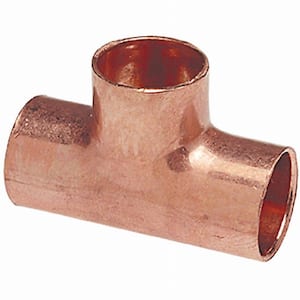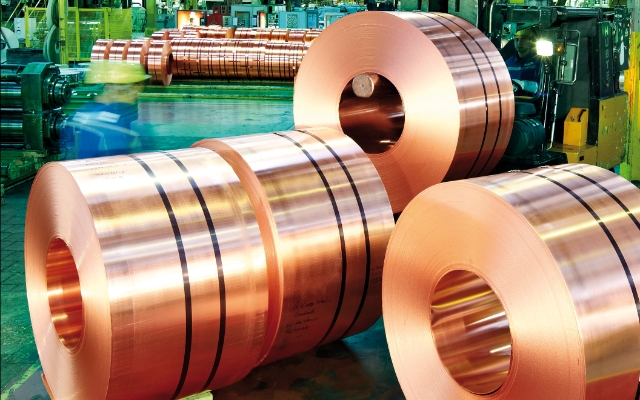The Ultimate Guide to Lasting Coping With Eco-Friendly Copper Products
The Ultimate Guide to Lasting Coping With Eco-Friendly Copper Products
Blog Article
Checking Out the Diverse Applications of Copper Products in Modern Industries
From enhancing the efficiency of electrical systems to playing a critical function in sustainable power modern technologies, the versatility of copper is apparent. As industries progressively focus on development and sustainability, the varied applications of copper warrant a closer evaluation, especially concerning their potential influence on future environmental methods and technological advancements.
Electric Applications of Copper
Copper is an essential material in the electrical sector, accounting for approximately 60% of the overall need for non-ferrous steels globally - Copper Products. Its premium electric conductivity, which is virtually twice that of aluminum, makes it the favored option for a variety of electrical applications. From electrical wiring systems in property and industrial buildings to high-voltage power transmission lines, copper makes sure efficiency and integrity in electricity distribution
In addition to wiring, copper is important to the production of electrical elements such as transformers, electric motors, and generators. These components leverage copper's thermal conductivity and pliability, crucial for warm dissipation and efficient efficiency. Copper's resistance to rust boosts the life-span and toughness of electric systems, making it an economical service in the long term.
The development of renewable resource resources, such as solar and wind power, has actually better raised the demand for copper in electrical applications. As sectors transition in the direction of lasting power solutions, copper's duty comes to be a lot more important. Generally, the adaptability and performance characteristics of copper strengthen its status as a foundation product within the electric market, driving technology and effectiveness across various applications.
Plumbing and Piping Solutions
In contemporary plumbing systems, the selection of materials significantly influences both capability and longevity. Copper has actually become a favored choice due to its special residential properties, consisting of deterioration resistance and antimicrobial attributes. These characteristics make sure that copper piping remains long lasting and secure for delivering drinkable water, a vital factor to consider in domestic and commercial applications.
One of the essential benefits of copper in pipes is its ability to withstand high temperatures and stress, making it appropriate for a selection of applications, from hot water systems to heating and cooling networks. Additionally, copper's adaptability permits for less complicated setup in complex piping layouts, reducing the danger of leakages and failings.
An additional noteworthy benefit is copper's lengthy lifespan, often exceeding half a century with correct maintenance. This longevity not just minimizes substitute prices however likewise contributes to sustainable methods by decreasing waste. Additionally, copper's recyclability straightens with modern-day environmental standards, promoting a circular economic situation within the plumbing industry.
Copper in Renewable Resource
The convenience of copper extends beyond plumbing applications, playing an essential role in the renewable power field. Its outstanding electric and thermal conductivity makes it a crucial product in the manufacturing and distribution of sustainable power sources, particularly solar and wind power. In solar panels, copper is made use of in solar batteries and electrical wiring, promoting effective energy conversion and transmission. Its resistance to rust guarantees lasting efficiency, which is important for optimizing power outcome in time.

In addition, as the worldwide demand for electric automobiles (EVs) boosts, copper's function in battery systems and charging infrastructure comes to be a lot more substantial. The product's ability to carry out electrical energy efficiently is integral to the performance of EV batteries, improving range and billing speed.
Copper's Role in Electronic devices
Electronics making counts heavily on copper's remarkable residential or commercial properties, specifically its high electrical conductivity and thermal efficiency. These features make copper an ideal option for a broad range of electronic elements, including ports, circuit boards, and circuitry. The metal's try this capacity to effectively transfer electrical signals makes certain very little power loss, which is crucial in high-performance digital tools.
Moreover, copper's thermal conductivity plays a significant duty in heat dissipation, protecting sensitive elements from overheating. This is particularly vital in modern electronics, where small designs bring about enhanced warmth generation. Copper is also favored for its malleability and ductility, enabling it to be conveniently formed into detailed layouts that satisfy the needs of sophisticated digital applications.
With the increase of customer electronic devices, telecoms, and electrical lorries, the demand for copper in the electronics market continues to grow. Therefore, copper continues to be a foundation product in the ever-expanding field of electronics.
Ingenious Makes Use Of in Manufacturing

One significant application remains in additive manufacturing, where copper-based products are employed in 3D printing processes. This enables for the development of intricate geometries and light-weight parts, specifically in the aerospace and automotive fields. In addition, copper's thermal conductivity makes it an ideal option for warm exchangers, improving effectiveness in industrial cooling systems.
Moreover, the increase of clever production has seen the unification of copper in IoT devices, where its conductive abilities sustain advanced noticing modern technologies. In the realm of renewable resource, copper is crucial in the manufacturing of solar panels and wind turbines, facilitating extra effective power conversion and circulation.
As markets strive for sustainability and technology, copper's flexibility and performance remain to position it as an important product, driving developments in production and adding to the advancement of smarter, a lot more effective items.
Conclusion
In summary, copper products demonstrate exceptional adaptability throughout different modern sectors. Copper Products. Their click this link superior conductivity enhances electrical applications, while rust resistance makes sure integrity in pipes. The important duty of copper in sustainable power and its important function in electronic devices underscore its value beforehand sustainable methods. In addition, innovative uses in making emphasize copper's flexibility and sustaining importance. Collectively, these applications highlight copper's essential contribution to technical development and industrial efficiency in modern culture.
From enhancing the efficiency of he said electric systems to playing a vital function in eco-friendly energy technologies, the convenience of copper is evident. As sectors increasingly focus on advancement and sustainability, the varied applications of copper require a closer assessment, specifically concerning their potential influence on future environmental methods and technical developments.
The growth of eco-friendly power resources, such as solar and wind power, has actually better increased the need for copper in electric applications. On the whole, the flexibility and performance features of copper solidify its condition as a keystone material within the electric industry, driving development and effectiveness across different applications.
The flexibility of copper extends past pipes applications, playing an important function in the renewable power sector.
Report this page